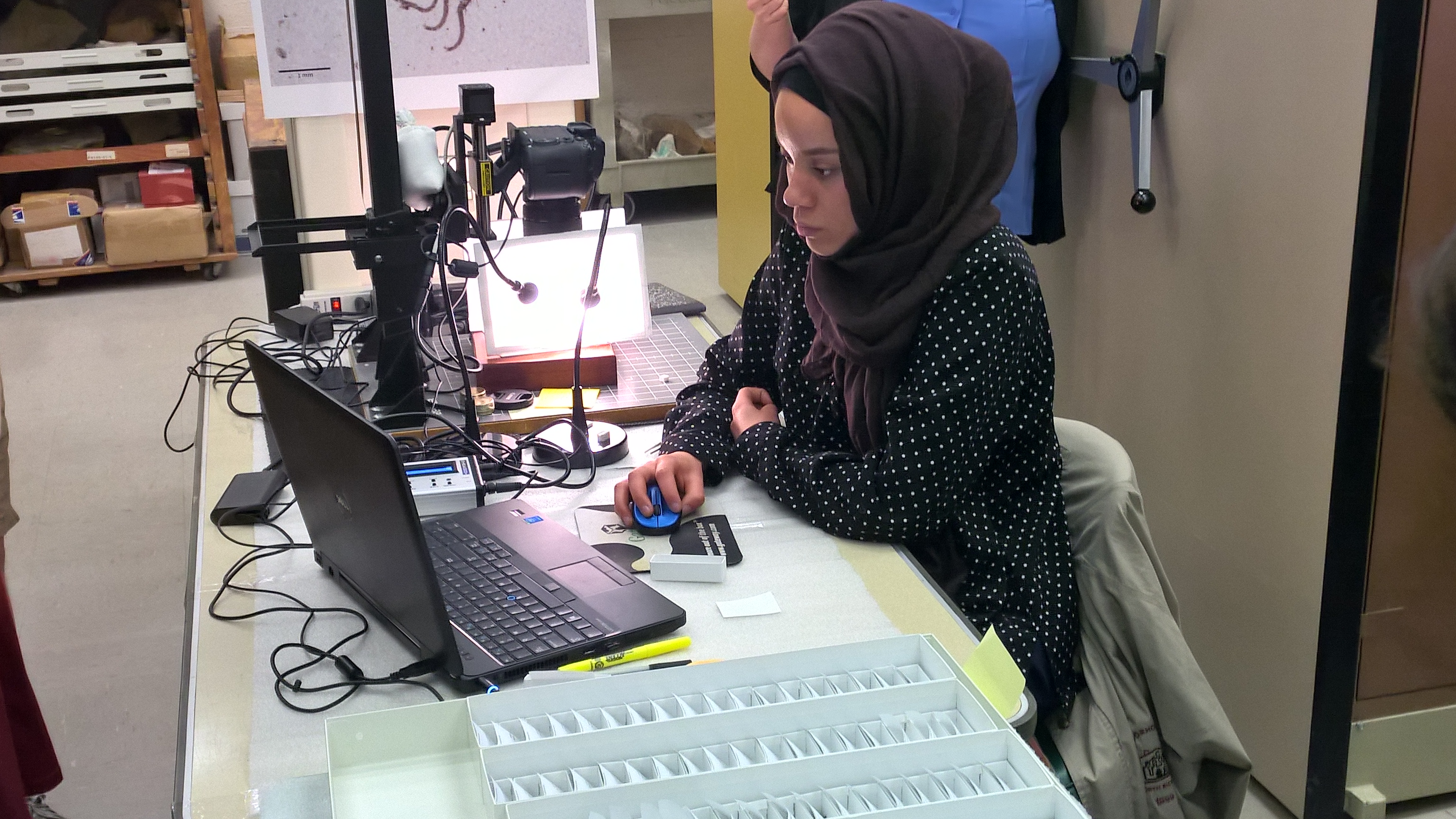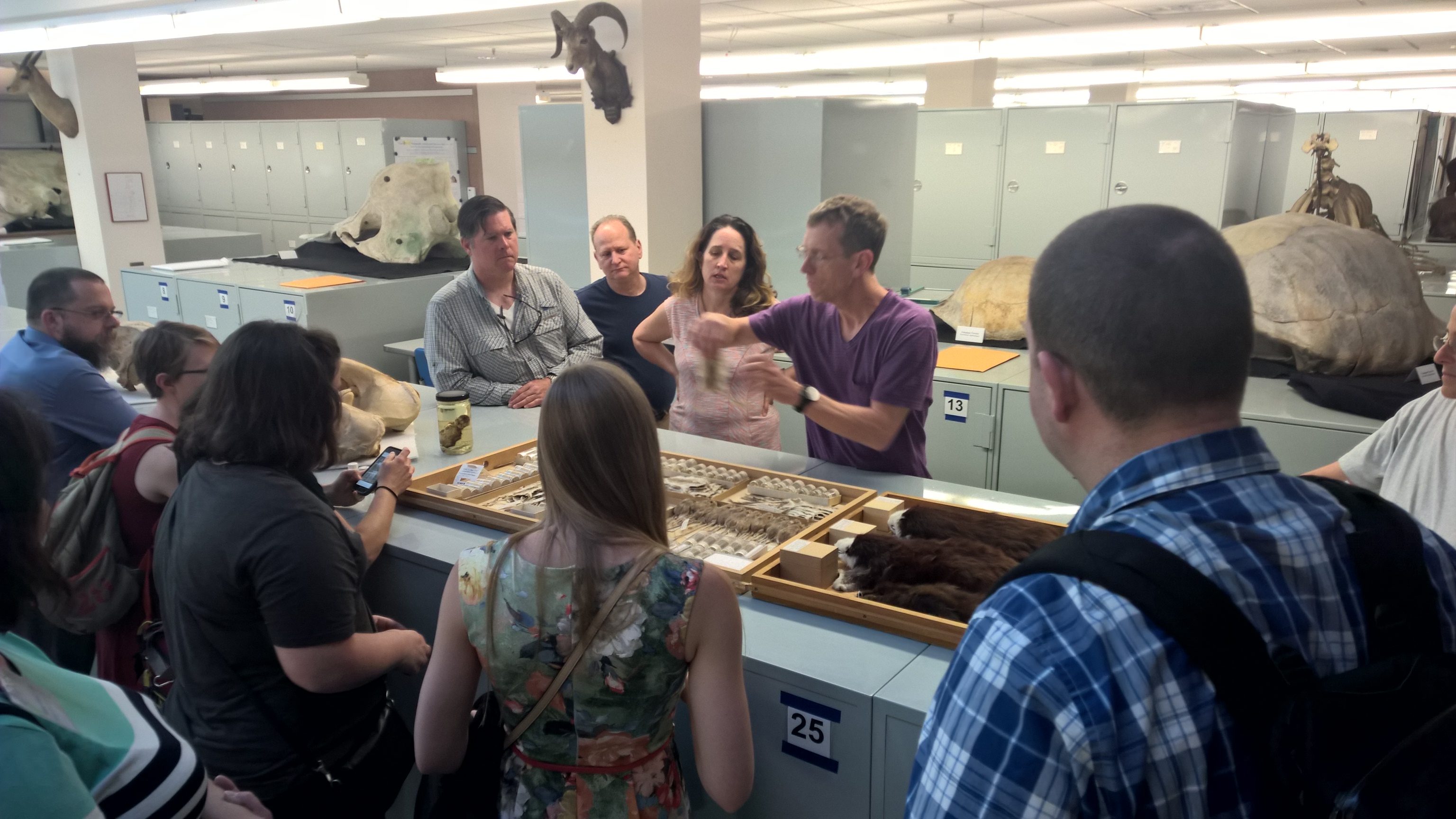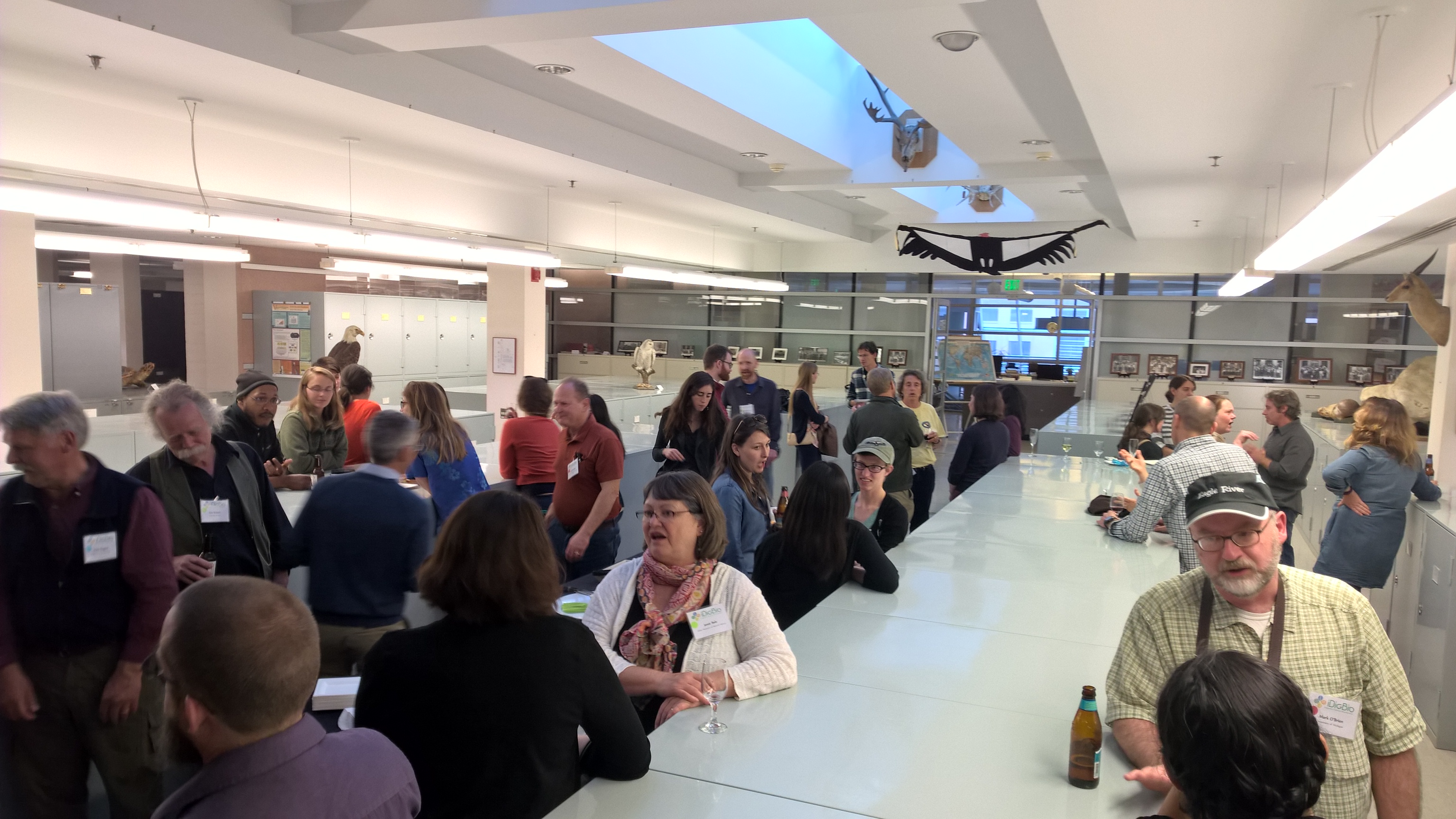
The Museum of Vertebrate Zoology (MVZ) and the Integrated Biology Graduate Student Association (IBGSA) at Berkeley teamed with iDigBio to co-sponsor a second vertebrate digitization workshop, this time focused heavily on imaging fluid- and dry-preserved vertebrate specimens. Nearly 60 attendees representing curators, collections managers, and biodiversity informatics experts gathered at Anna Head Alumnae Hall, a few blocks from the University of California, Berkeley campus 4-6 April for an inspiring agenda of talks, demonstrations, and tours, with plenty of time set aside for discussion and participant interaction.
Dr. Michael Nachman, director of MVZ, offered a brief welcome just prior to a morning of plenaries and concurrent sessions focused on data and media standards, data aggregation, and tips for evaluating, selecting, and migrating to new database systems. The MVZ also hosted a participant reception at the museum Monday evening, with ample opportunity for continued interaction. 
Imaging plenaries began immediately after lunch the first day and continued Tuesday morning, and were followed by a series of imaging-related concurrent sessions Tuesday afternoon. The imaging sessions set the stage for a series of Wednesday morning demonstrations that included more detailed considerations of image stacking, data cleaning, scanning microscope slides, migrating data from Excel to relational databases, using mobile devices for collections management, using a light box, and squeeze tank imaging. Following the demonstrations, participants were treated to a selection of tours that included the MVZ, the U.C. Museum of Paleontology, Essig Museum of Entomology, and the University of California and Jepson Herbaria.


The workshop planning team—which did an excellent job of maximizing the amount of quality content that can be compressed into a three-day agenda—consisted of representatives from an array of important vertebrate collections and included:
- Laura Abraczinskas, Michigan State University,
- David Bloom, iDigBio/VertNet,
- Emily Braker, University of Colorado,
- Carla Cicero, Museum of Vertebrate Zoology,
- Molly Hagemann, Bishop Museum,
- Gil Nelson, iDigBio/Florida State University,
- Cody Thompson, University of Michigan,
- Mike Webster, Cornell Laboratory of Ornithology, and
- Andy Williston, Museum of Comparative Zoology
Participants awarded the workshop an "A" grade in the post-workshop evaluation. All indicated that the content at least met their expectations and most reported that the workshop exceeded them. Many thanks to the planning team for being attuned to community needs and for its excellent work, and to the participants for outstanding contributions!
iDigBio is pleased to have had the opportunity to collaborate with the University of California and the staffs of its numerous museums. Recordings and PDF versions of all talks are available at: https://www.idigbio.org/wiki/index.php/IDigBio_Vertebrate_Digitization_Workshop_Two.








